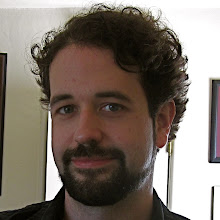This article struck a nerve for me, because it highlighted one of my ongoing insecurities about my own teaching: the fear that I haven't been effectively implementing the sort of inquiry-based approach to learning that I wanted to use. Given my students' poor performance on the quizzes after the early lab activities, I had to conclude that they retained very little of what I had tried to teach in those lessons.
How do you know students understand key points of your content?
I've been trying different approaches. The quizzes are intended to check for the ability to remember, comprehend, and analyze/synthesize concepts discussed in class. The students are improving in their ability on the first two points, but many of them haven't even tried to answer the more difficult written problems intended to check for the latter. Less formal checks for understanding, like asking them to explain concepts to me verbally, have mixed results.
Today I tried something new: I had my students do a written reflection for me on three questions related to the cardiovascular, digestive, and nervous systems. The focus of the questions was on how these different systems keep the rest of the body running. I also asked them to each identify one thing they understand now about biology that they didn't before, and the biggest thing we've talked about that they still don't understand. I haven't checked these papers yet, so I don't know how well they did. I do know that a lot of them wasted time during the class and didn't finish, even with the incentive of having the computers ready and waiting for them to use after they completed the assignment.
What skills/understandings do students need to know about learning your specific subject?
I'm trying to parse this sentence in order to answer it correctly. I think it's asking, not what specific skills and understandings must be gained by the end of the course, but what skills and understandings they will need in order to even begin learning effectively within my subject. The latter is a more difficult question, and also more interesting.
One thing that I think is key is the concept of the scientific method. This is something I haven't hit on heavily in the class up to now, and I think it's going to be crucial when we start to get into ecology. One can work through much of physiology without understanding how we learn things in science: the parts of the body and their functions are very well-characterized now, and it isn't necessary to understand the process of scientific inquiry in order to know how these parts work together. When we get into ecology, though, that's inherently fuzzier territory, and the system of observe-hypothesize-test-refine is going to be much more important. Scientific method is important both as an understanding (they need to get the reasoning behind it) and as a skill (they need to be able to do it, if they're going to do inquiry-based learning).
Another key understanding that underlies biology is that everything is connected to everything else. We study organs and organ systems in isolation, but it's critical to realize that these things function as parts of a unitary organism. Similarly, the different organisms in an ecosystem are closely tied together, both with other members of their own population and with other populations occupying different niches within the community. What affects one species affects the others it is connected to, as well.
How are you teaching this in your class right now?
Not well enough, to judge from the results. I'm going to need to put in some serious effort on this next unit to design inquiry-based lesson plans and get away from both all-traditional instruction and undirected hands-on exploration.
Oh, yeah: and I have to do it with two weeks less time than I thought I had.
Lovely.
Wednesday, October 22, 2008
Subscribe to:
Post Comments (Atom)

No comments:
Post a Comment